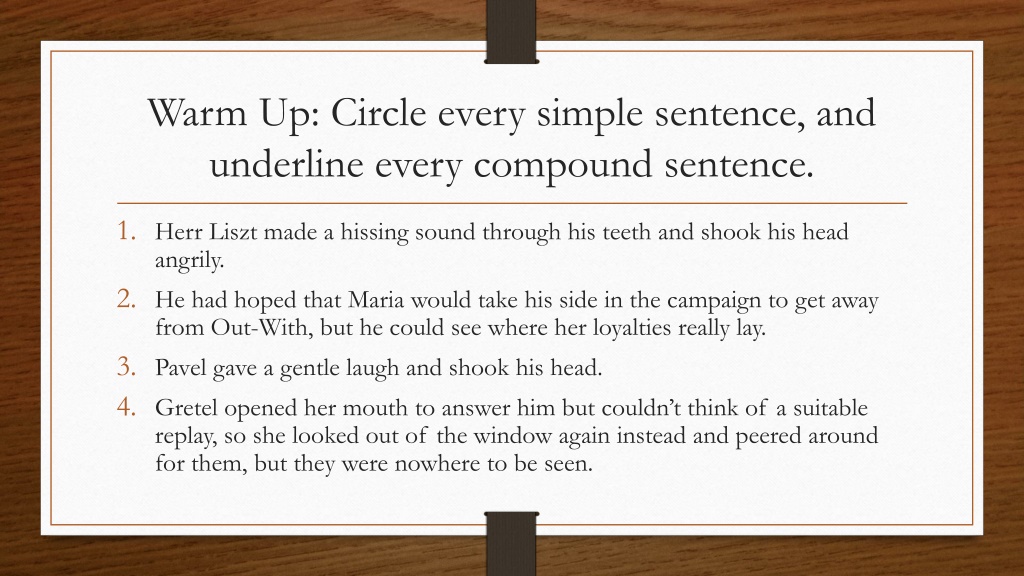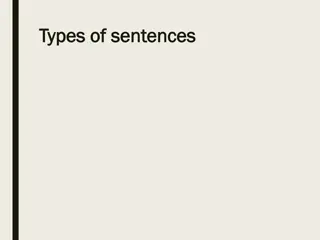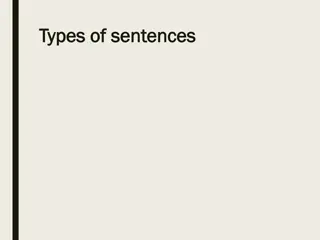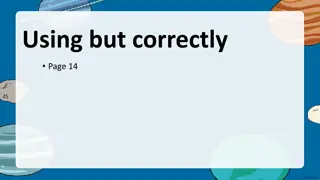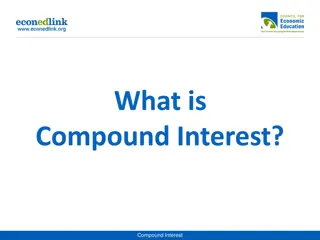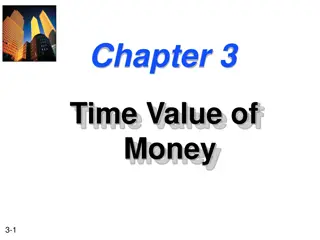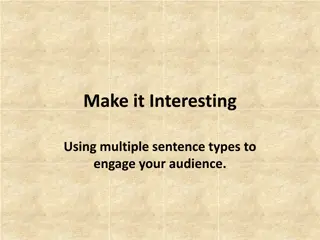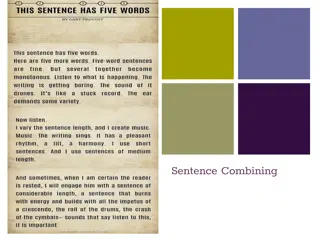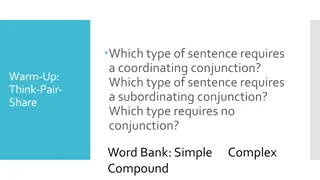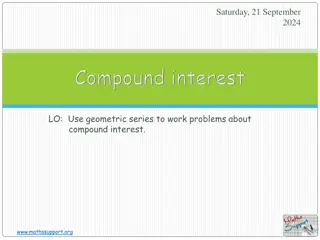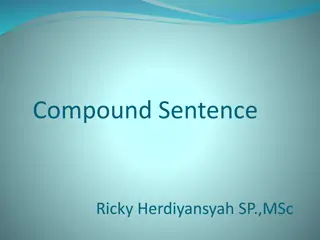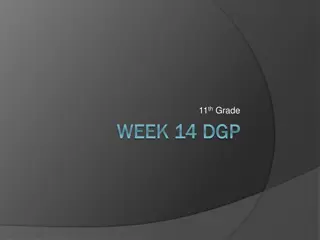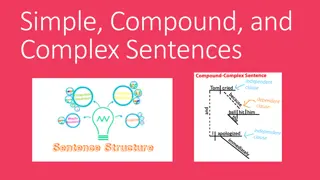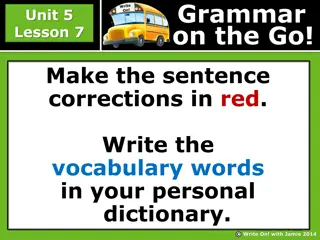Understanding Sentence Types: Simple vs Compound
In the provided text, simple sentences, which consist of a subject, verb, and complete thought, are circled, while compound sentences, made up of two independent clauses connected by coordinating conjunctions, are underlined. Examples and explanations of both sentence types are given, along with details on coordinating conjunctions and independent vs dependent clauses.
Download Presentation

Please find below an Image/Link to download the presentation.
The content on the website is provided AS IS for your information and personal use only. It may not be sold, licensed, or shared on other websites without obtaining consent from the author. Download presentation by click this link. If you encounter any issues during the download, it is possible that the publisher has removed the file from their server.
E N D
Presentation Transcript
Warm Up: Circle every simple sentence, and underline every compound sentence. 1. Herr Liszt made a hissing sound through his teeth and shook his head angrily. 2. He had hoped that Maria would take his side in the campaign to get away from Out-With, but he could see where her loyalties really lay. 3. Pavel gave a gentle laugh and shook his head. 4. Gretel opened her mouth to answer him but couldn t think of a suitable replay, so she looked out of the window again instead and peered around for them, but they were nowhere to be seen.
Simple Sentence A simple sentence has the most basic elements that make it a sentence: a subject, a verb, and a completed thought. She was his sister. A simple sentence can contain a compound verb or subject: Herr Liszt made a hissing sound through his teeth and shook his head angrily. Pavel gave a gentle laugh and shook his head.
Compound Sentences A compound sentence refers to a sentence made up of two independent clauses connected to one another with a coordinating conjunction. He had hoped that Maria would take his side in the campaign to get away from Out-With, but he could see where her loyalties really lay.
Coordinating Conjunctions These are FANBOYS (for, and, nor, but, or, yet, so) They join one independent clause to another He had hoped that Maria would take his side in the campaign to get away from Out- With, but he could see where her loyalties really lay.
Practice! 3 minutes End
Independent Clause vs. Dependent Clause Independent Must contain a subject and a verb and express a complete thought Example: Herr Liszt was particularly fond of history and geography, while Bruno preferred reading and art. Dependent Must contain a subject and a verb, but starts with a subordinate conjunction or relative pronoun Example: Herr Liszt was particularly fond of history and geography, while Bruno preferred reading and art.
The Boy in the Striped Pajamas Chapter 9 Questions
How does Herr Liszt and his lessons relate to what we ve learned in class so far? Why do you think Boyne had Herr Liszt speak against Bruno s Grandmother?
Why do you think Herr Liszt encouraged Bruno to have heroes like Christopher Columbus, considering what Herr Liszt represents?
Explain why Bruno decides to go exploring, and what his parents could have done before this point in the book to stop him.
Homework Read chapter 10 for class tomorrow Complete the grammar sheet
